 Sign in
Sign in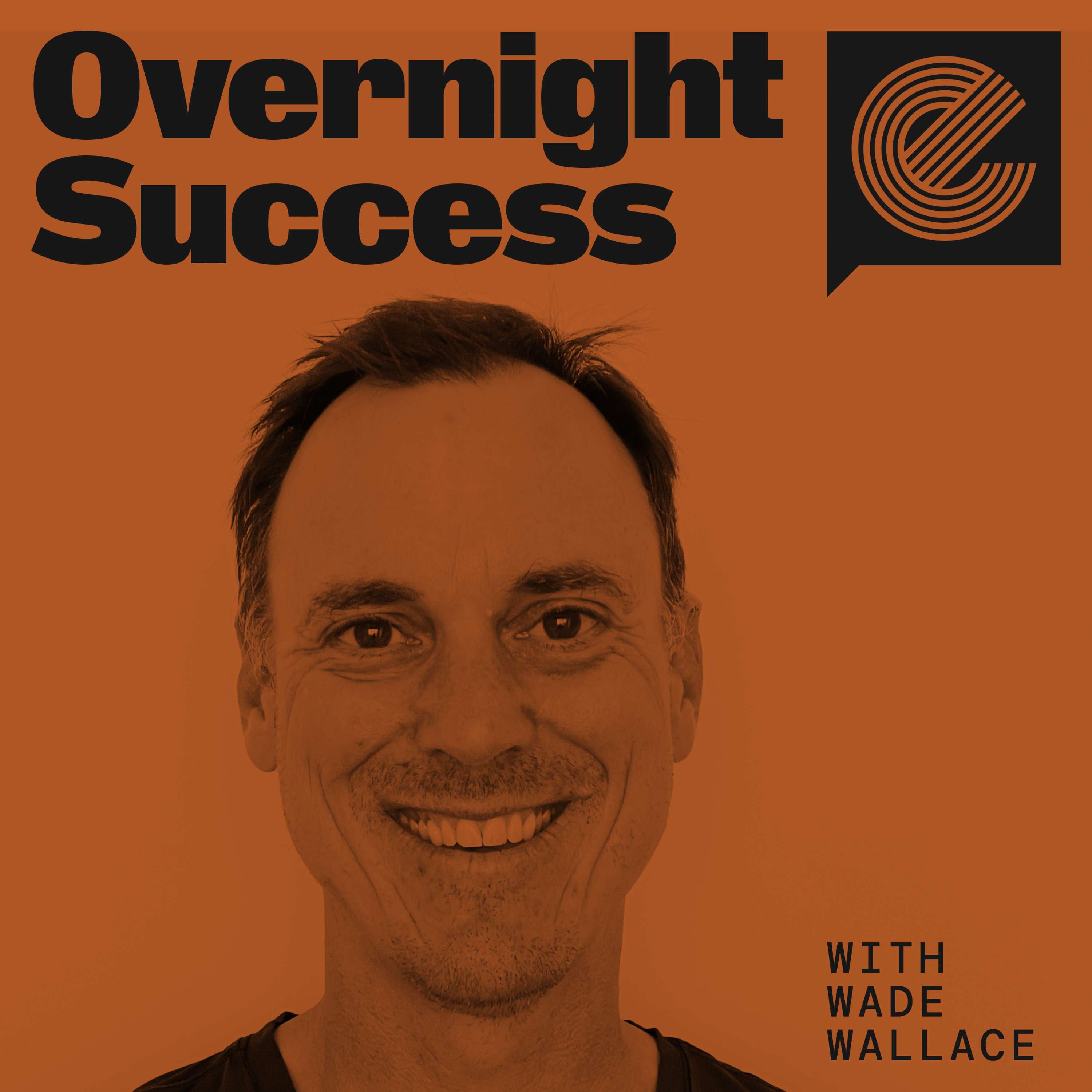
Business
Sports
Escape Collective
A podcast about the founders, the innovators, and the remarkable people in the cycling industry and the stories about the icons they've created.
Escape Collective is entirely member-funded. If you like this podcast please consider supporting us by becoming a member: https://escapecollective.com/member/
Total 30 episodes
1
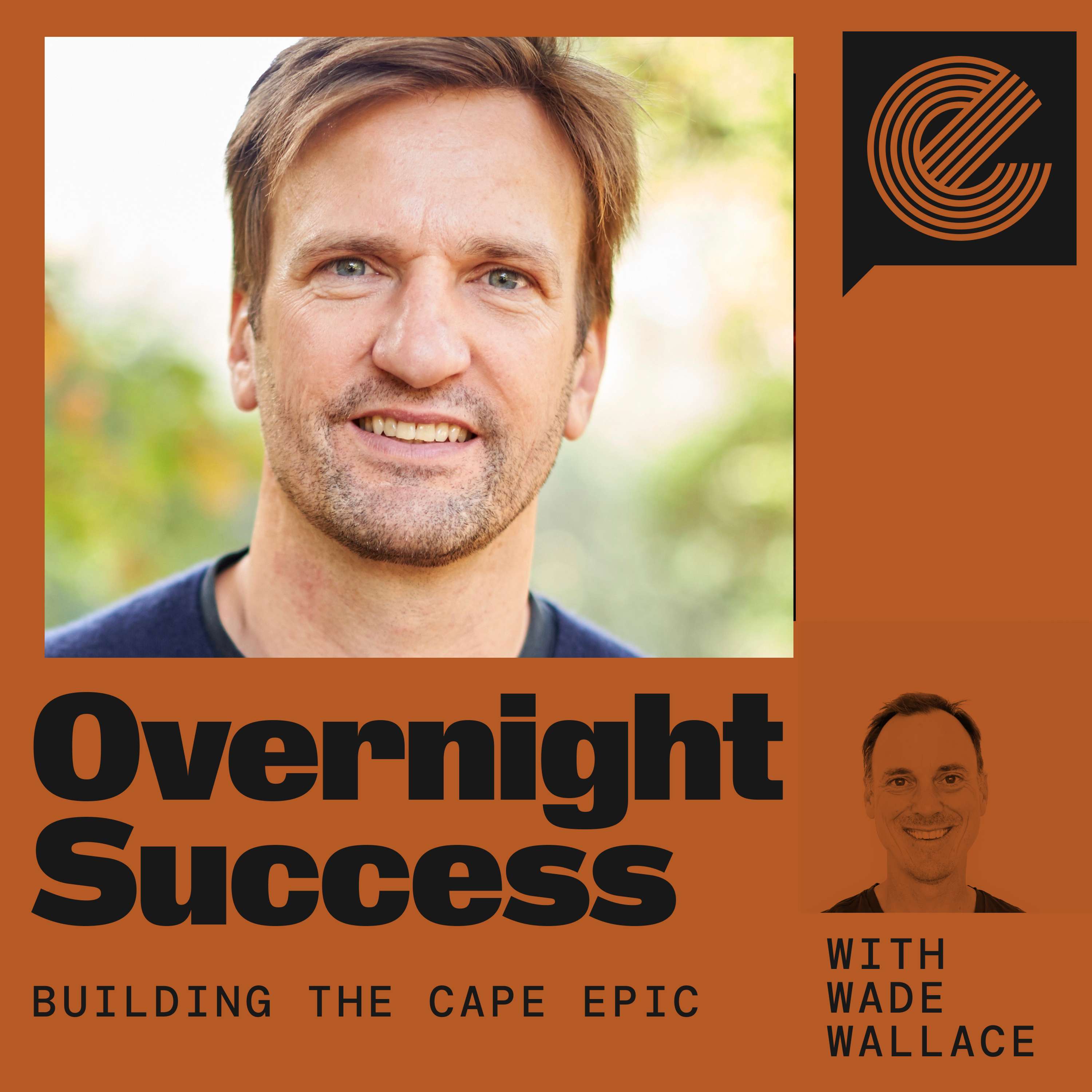
Building the Cape Epic
The Cape Epic is widely regarded as the crown jewel in mountain bike stage racing. Many notable legends of the sport have called it the Tour de France of mountain biking. So how did Kevin Vermaak, a 30-year-old man new to mountain biking create a cultural phenomenon in the MTB world in the far away land of South Africa? This is his remarkable story...If you like this podcast and want to hear more, please support our work by becoming a member: https://escapecollective.com/member/
01:27:3920/11/2024
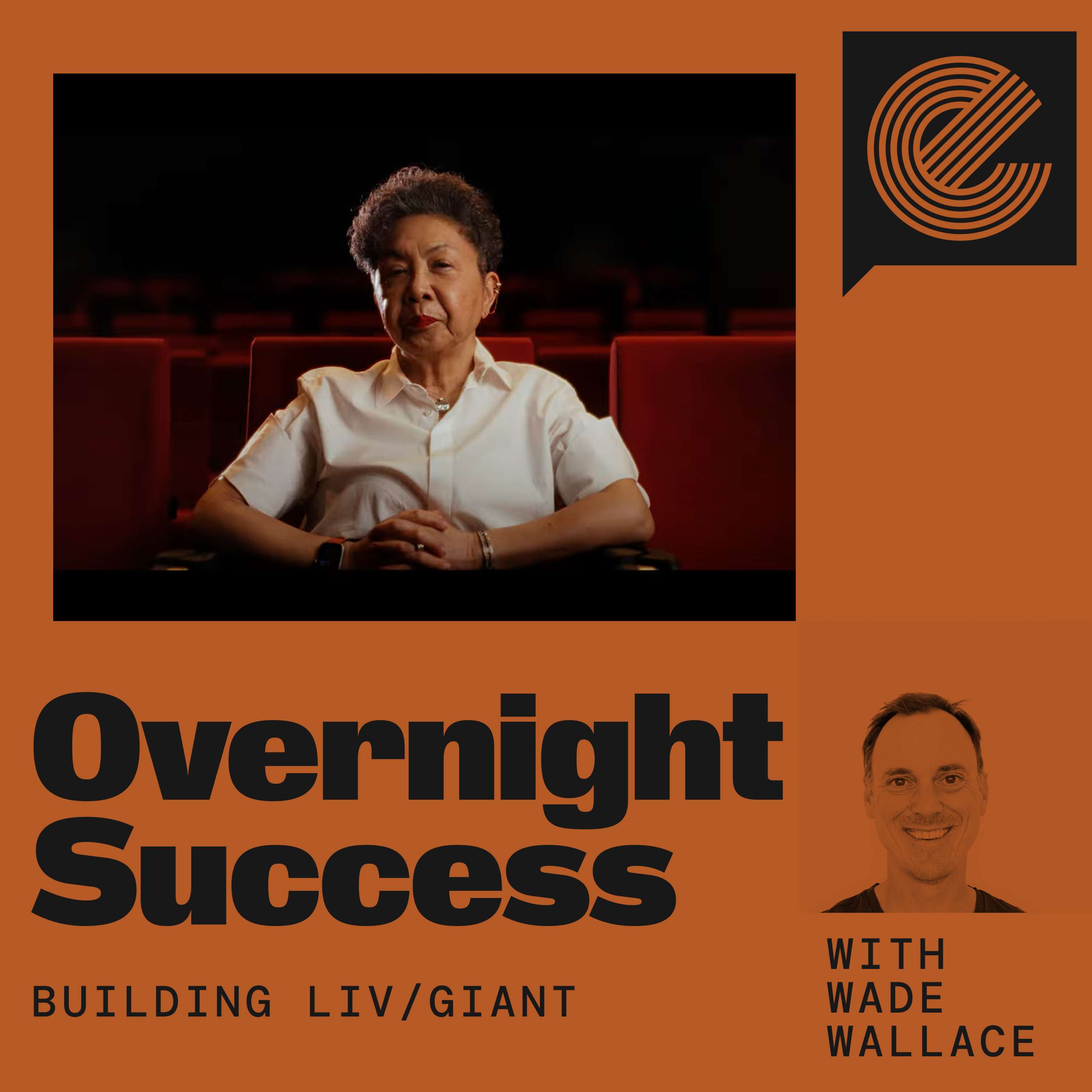
Building Liv/Giant Bikes
You could argue that Bonnie Tu is the most powerful woman in cycling, although she wouldn’t think of describing herself that way. She’s best known for being the face of the Liv brand she created back in 2008, but more than that she’s chairperson of the largest bike brand in the world: the Giant Bicycle Group. What does that mean? Quite simply, she runs the entire company.Giant Bicycles is a US$2.1 billion-per-annum publicly traded company that produces millions of bikes per year, while also serving as manufacturer for some of the largest and most reputable bike brands.Giant was founded in 1972. That’s 48 years ago, and Bonnie was one of the founding shareholders. As you’ll hear, she has been very influential in many of the company’s foundations and its pathway up until now.This is the growth story of Bonnie Tu and not necessarily the story of Giant Bicycles or Liv. But they’re so intertwined that it’s hard not to tell one without the other.
56:3224/10/2024
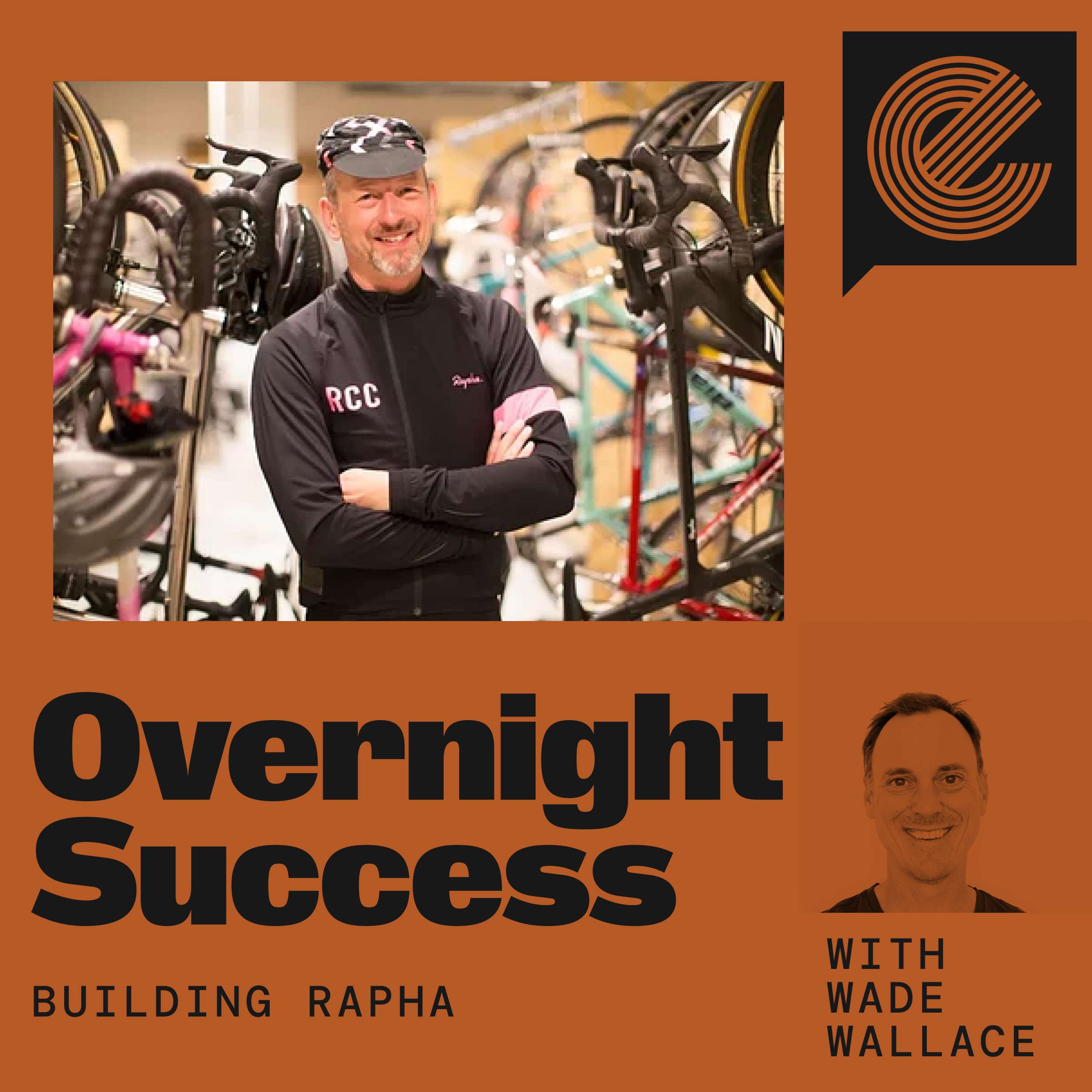
Building Rapha
In recent years Rapha has been one of the most innovative, aspirational and disruptive businesses in cycling and Simon Mottram is the mastermind behind the brand. He took the company from a single idea, with the premise of how he felt about road cycling and how he wanted it portrayed. From a single jersey that wasn’t even ready in time for the company launch during in 2004, he build Rapha into the darling child of cycling brands that inspired an entirely new market of ‘micro apparel brands’ and showed many others of the cycling industry the power of storytelling and looking at the sport differently.This is Simon’s remarkable story of how he built Rapha.
01:23:0420/09/2024
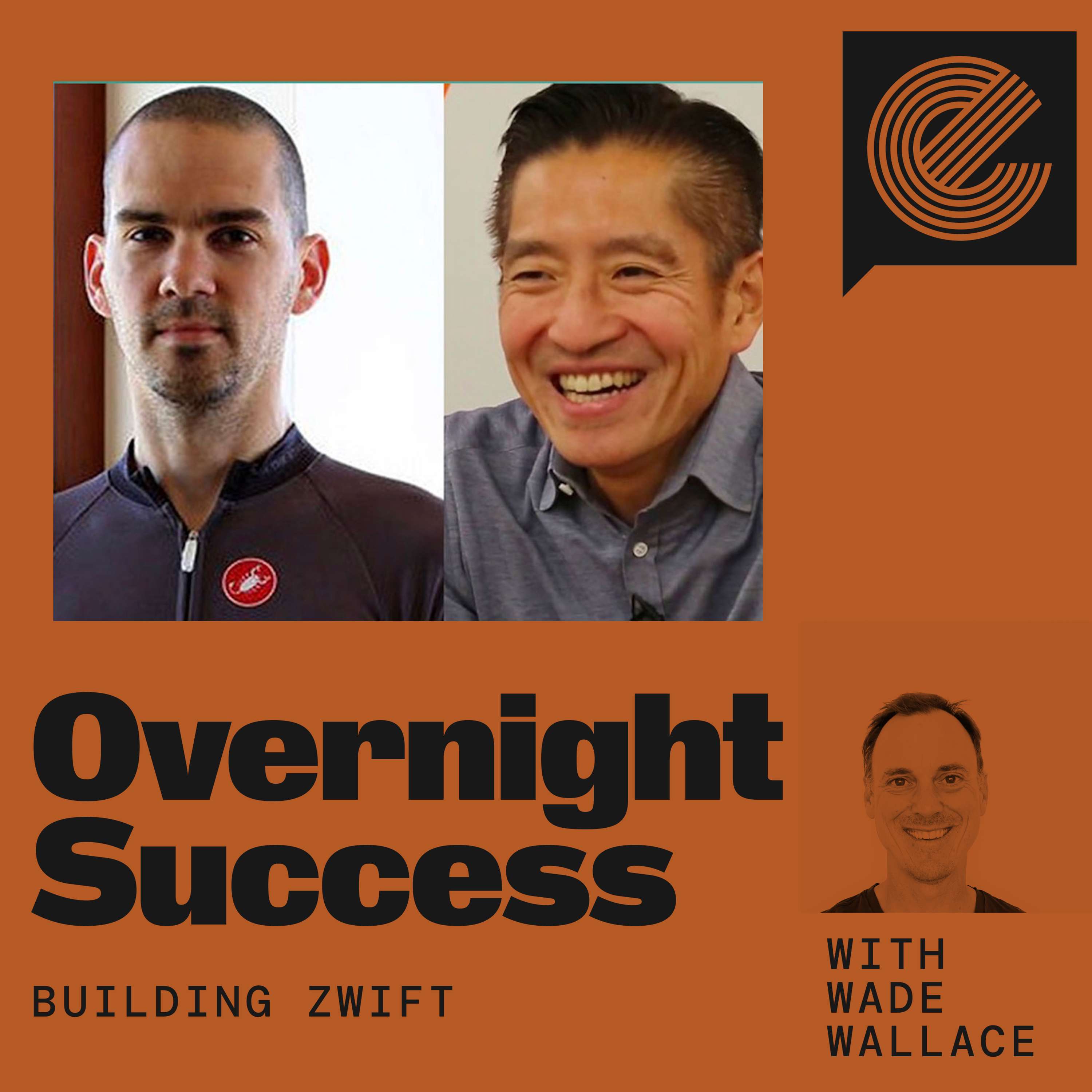
Building Zwift (replay on their 10th anniversary)
Indoor training has been around for longer than I can remember, but when Zwift came along in 2014 it changed the market forever. The company came into the world with bold ambitions, reimagined the space and what it could become, and has grown the market to a size that nobody could have imagined.Some of the earliest pioneers in the indoor virtual world space were the likes of Computrainer and Tacx back in the late 90s, early 2000s. But they never really delivered on the promise of making indoor training much more enjoyable. They can’t be blamed for lack of vision or not trying – the technology wasn’t even there at the time. Social networks didn’t exist, multi player online games weren’t around, broadband speeds were slow and wireless protocols such as ANT+ and BTLE hadn’t been invented yet. But, in 2010 when a gaming software developer in Southern California named Jon Mayfield began tinkering with his kinetic trainer and finding ways for it to communicate with a virtual world he built, he had no idea how big this would become.Escape Collective is entirely member-funded. If you like this podcast please consider supporting us by becoming a member: https://escapecollective.com/member/
01:09:5505/09/2024
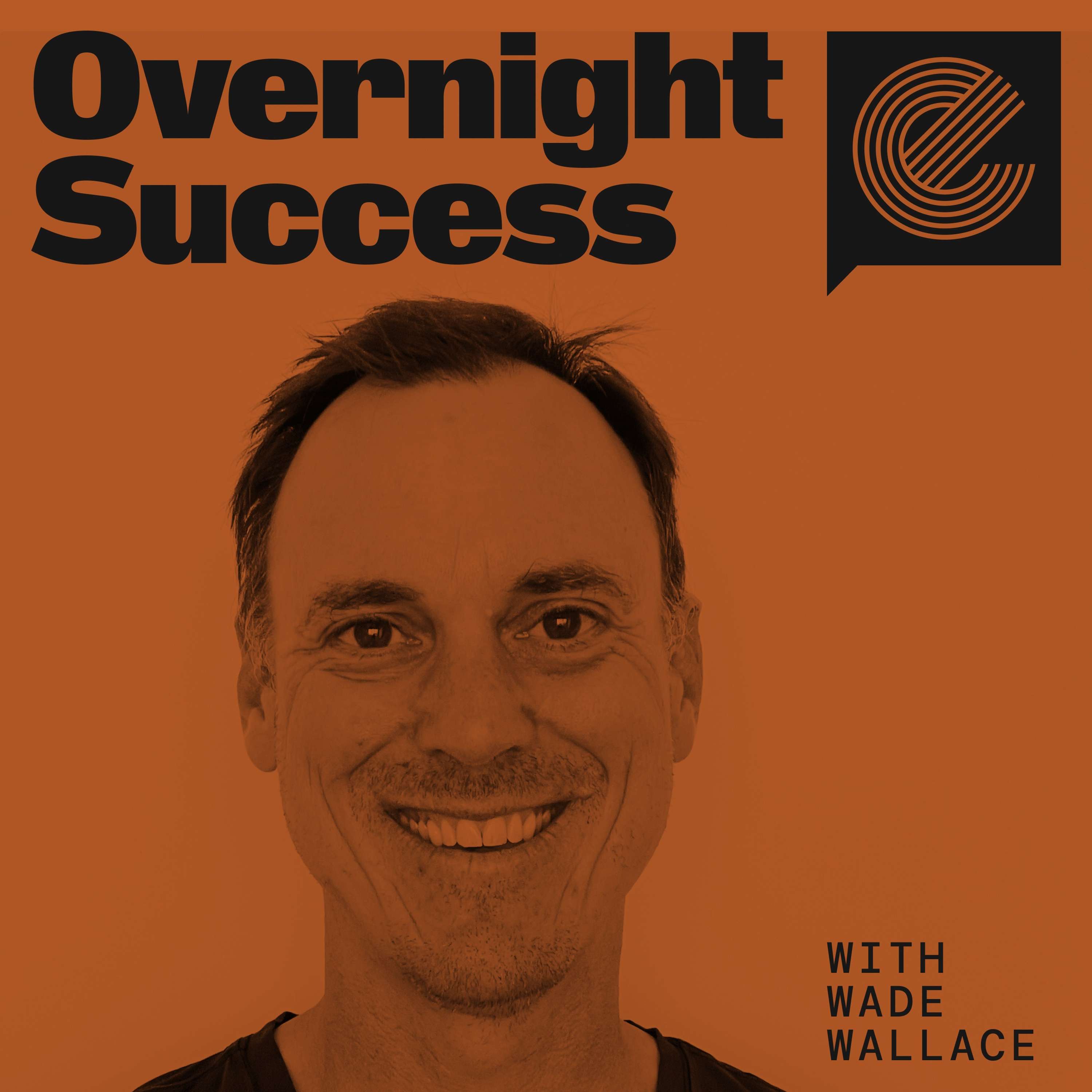
Building Canyon Bikes (Replay)
To most of us it would seem inconceivable to build one of the biggest bike brands in the world from absolutely nothing. Think of the capital it would require, the global distribution network, complex supply chains, logistics, manufacturing, sales, design … It’s a daunting endeavour and hard to imagine where you’d even begin.Well, it didn’t start with all of those elements in mind. Roman Arnold, Canyon's founder, simply started cycling as a way of competing for recognition and approval from his father over his three brothers. His father sold bike parts at his weekend races to help pay for the hobby. And the rest is history.He started from humble beginnings, got his hands dirty, educated himself, and grew Canyon to be one of the largest cycling brands on the planet through baby steps, hard work, diligent spending and most of all, a true passion for cycling.For a brand that feels so young and progressive, some might mistake it for an overnight success. But as you’ve now learned it’s been over 45 years in the making, one small step at a time with the resources that Mr Arnold has had right in front of him.This is Roman’s remarkable story of how he build Canyon Bicycles.
01:08:3503/09/2024

Building Cervelo (Replay)
Many would argue that Cervélo is one of the most innovative bike brands in the cycling industry. Back in the 1990s when they first started, almost everyone else was focusing on lightweight bikes. Cervélo, meanwhile, was busy pioneering bicycle aerodynamics. I’ve ask engineers at various bike companies which brand impresses them most with regards to engineering and innovation, and overwhelmingly I hear them say Cervélo.The genesis of Cervélo started in 1995 when two young engineering students named Phil White and Gerard Vroomen met in the composites lab at McGill University in Canada. Over a span of 15 years they went from building a crazy aerodynamic time trial bike as a university project to creating one of the most disruptive and loved bike brands in the world. But what many people don’t know is that as wildly successful Cervélo was up until 2011, it was a pressure cooker of constant financial challenges which ultimately led to Gerard and Phil selling the business to Dutch holding company, PON. 2008-2011 had been the perfect storm for Cervélo with the global financial crisis, setting up a professional team that was far more successful than anticipated, and a private lender which led to the company’s turn of events.Escape Collective is entirely member-funded. If you like this podcast please consider supporting us by becoming a member: https://escapecollective.com/member/
01:47:0327/08/2024
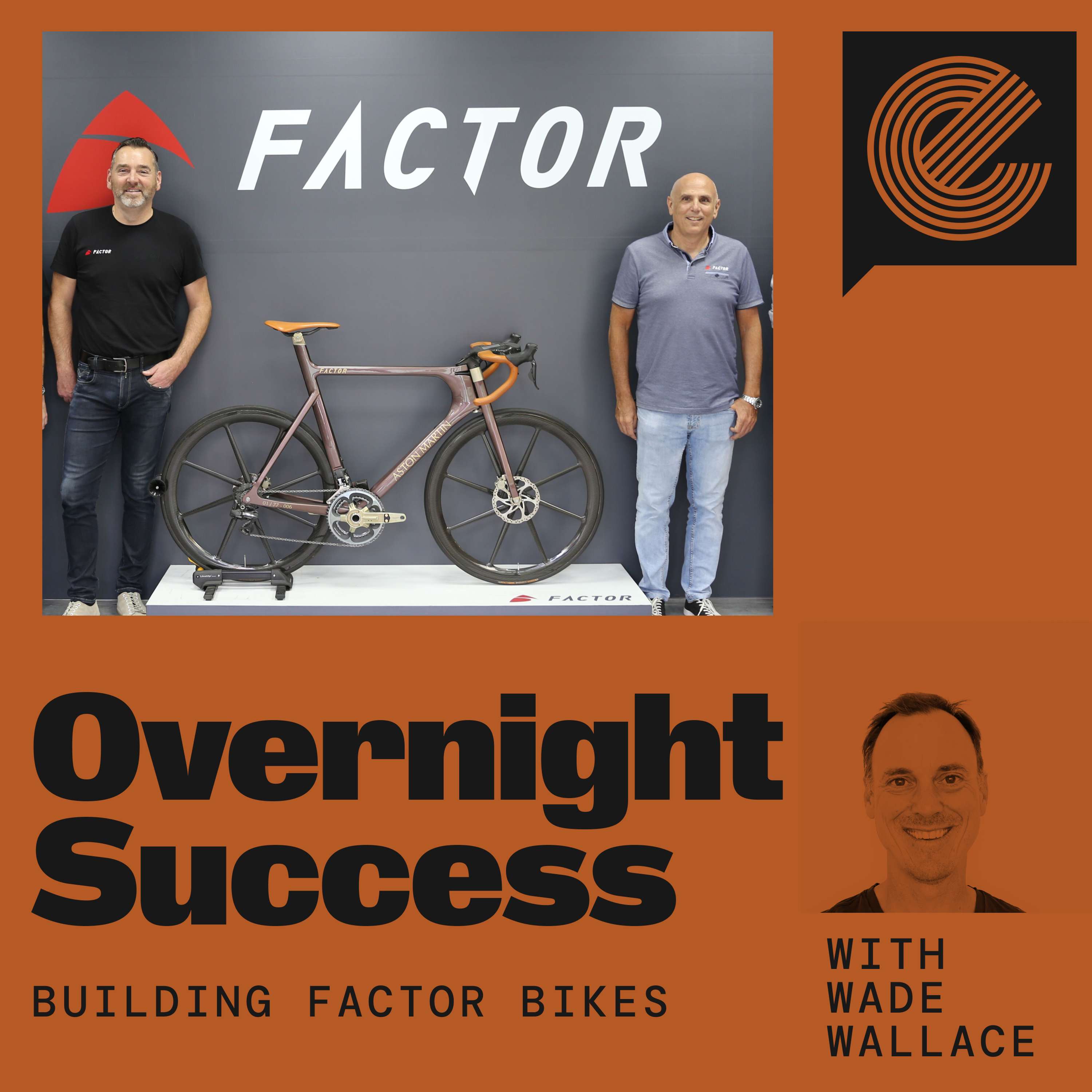
Overnight Success: Building Factor Bikes
For many years, bike brands have been known to collaborate with automobile and Formula 1 companies in order to align themselves with their halo of high level performance, innovation and technology. But factor bikes started in reverse to that. Factor might seem like a relative newcomer in the market, and that's partially true. It's been a mere eight years since their bikes became widely available, but they got their start almost 16 years ago when a gentleman named John Bailey came along, who owned a Formula One data measurement and composites company. His company was called British Formula One, or BF-1 for short. John wasn't even a cyclist, but he wanted a project for his team of engineers to work on that showcased BF-1's capabilities and technology to his automotive market. He did this by launching a bike into the future and breaking every rule in the book.If you enjoyed this and want to hear more, please become a member of Escape Collective by joining here: https://escapecollective.com/member
01:03:2116/08/2024
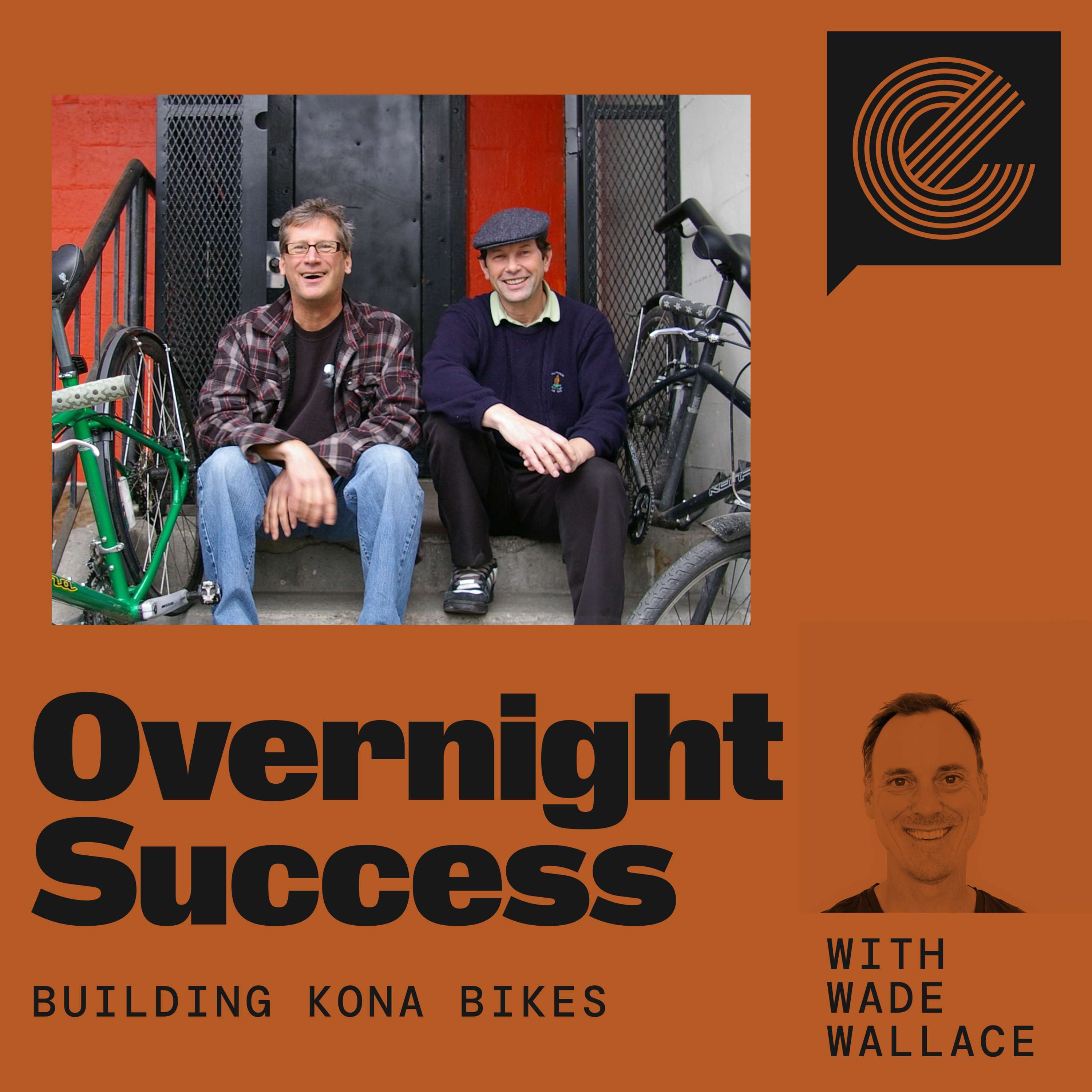
How the founders of Kona Bikes saved their company
It’s been said that Kona is 'The Smallest Biggest Bike Company in the World'. They’re best known as the quintessential North Shore bike brand, yet their global head office is just down over the border in Ferndale, Washington.The quirky company stood out with outrageous bike model names such as the Stinky Dee-Lux, Sex One, Sex Too, and, Jackshit, which placed them well and truly as the "alternative" bicycle company.The business was founded by Dan Gerhard, Jacob Heilbron in Vancouver, BC along with mtb hall of famer Joe Murray as their designer.With a rich history of iconic bikes and factory race teams, it was all overshadowed by the recent events of their former owners, Kent Outdoors, who were responsible for running Kona into the ground (my words, not theirs) before the original founders bought the company back last month. Only a few weeks after Dan and Jake bought the company back, I spoke to Jake about Kona’s founding story that dates back to 36yrs ago in 1988, the sale of the business to a private equity-backed company, and what happened that led them to buying Kona back. If you like this podcast and want to hear more, please support our work by becoming a member: https://escapecollective.com/member/
01:27:5807/06/2024

Industry Special Q&A: Buyer ethics, Brexit, advocacy and more...
In our final episode of this limited series, we turn the floor over to member questions. Thank you to everyone who became members throughout this series. Every single one of you helps make us produce more content like this. If you're not a member, you can join here: https://escapecollective.com/join/You can listen another podcast you'll enjoy about 'Why are modern bikes so expensive' podcast here: https://escapecollective.com/why-are-modern-bikes-so-expensive/
01:29:1425/03/2024

How did the bike industry get into such deep trouble? EP4: The Aftermath
In EP3, we heard about what much of the bike industry experienced during that dramatic slowdown of bike sales, and what resulted. In this episode, EP4, we'll hear about some of the learnings and takeaways from the past three years, and put forward some tough questions for the bike industry to ask itself.
01:06:4426/02/2024

How did the bike industry get into such deep trouble? EP3: The Famine
This is the third episode in our series that takes a deep dive into what the bike industry experienced during the covid boom and how it got into the trouble it’s in now.In Episode 2, we heard from various industry professionals about the early warning signals that told them that this bubble was about to burst, and some of the reckless behaviour and pressure that was being put onto various parts of the supply chain by some big brands. But it’s not so clear-cut. We’re also beginning to hear some finger-pointing in all directions and I supposed the fragmented nature of the bike industry makes it really easy for things to slip through the cracks and in hindsight, it was perhaps a recipe for disaster.In reference to the postmortem of Wiggle/CRC and the interview with Jake Dudek done in this episode, you can read his post on LinkedIn here: https://www.linkedin.com/pulse/postmortem-signa-sports-united-jacob-dudek-xau9f/In this episode entitled ‘The Famine’, we zoom into the timeframe when demand came to an abrupt halt and what the bike industry was left with.
51:3419/02/2024

How did the bike industry get into such deep trouble? EP2: The Storm Clouds
In episode one we heard about the unexpected windfall that the cycling industry saw at the start of the pandemic and how many needed to react. Of course that didn’t last forever, and in this episode I’ve titled ‘the storm clouds’ we talk about the early signs that this new demand was coming to an abrupt halt, and the types of behaviour that was happening and the causes of that behaviour that led to the catastrophe that the industry would later see.
37:3313/02/2024

How did the bike industry get into such deep trouble? EP1: The Feast
In this 4 part series, I wanted to explore the events that took place that led the bike industry to the troubling point it’s at now. I spoke to over a dozen industry professionals from all parts of the supply chain. From well run bike shops, forecasting analysts, distributors, the biggest bike brands in the world, and manufacturers. It’s well known that the bicycle industry went through an unprecedented boom during the pandemic from 2020 - 2022. Jump ahead to 2024 and much of the bike industry is in trouble. New demand has come to an abrupt halt. New entrants into the bicycle market have not stayed as the industry had hoped.We’re seeing massive inventory overruns at bike shops. Big bike brands are taking on extra warehousing space. Businesses such as Niner, Orange, Wiggle/CRC, have gone into bankruptcy. Otherwise profitable big brands have taken on debt to keep afloat. There are brands out there who are doing well, but they’re the exception rather than the norm. In general , I don’t think many would disagree that the situation in major cycling markets, aside from China, is pretty dire.The episode is this first of four. We’re going to bring you on a journey through the COVID feast, the storm clouds, the famine, and the lessons learned in hindsight.In this episode, The Feast, we speak to a bike shop owner, a demand forecasting analyst for a distributor, company CEOs, and a manufacturer to hear about what they experienced during the initial stages of the pandemic in early 2020.
53:3012/02/2024

Building Hunt Wheels
There’s an undeniable truth that an overnight success takes about 10 years, not a single night. Almost no one comes up with a winning business idea all at once. And if you’re not Peter and Tom Marchment or those around them who created the aftermarket wheel brand Hunt, you might be mistaken that they came out of nowhere. Tom and Peter are brothers who grew up riding in a small fishing village on the Isle of Man and like most of us at the beginning, cycling was a way to get around and a source of freedom. That progressed to mountain biking and then cross-country racing then road racing and time trialling - as you do in the UK. At University Peter got some background in materials sciences while Tom took a degree in ergonomics, which is human psychology and physiology applied to design, which he admits that he really didn’t like. Their paths diverged after university when Tom started working in a bike shop where he got some cycling industry experience, while Peter went to work at a bank. Peter and Tom have been slowly putting the building blocks of their steadfast aftermarket wheelset business together for nearly a decade now, all starting with an online store called The InnerTube Shop back in 2013. Here’s Peter and Tom Marchment who started InnerTube Shop telling about how it all began.
01:02:1424/01/2024

Building DeFeet
DeFeet is mostly thought about as a sock brand, and that’s largely the case, even though they also make arm warmers, gloves and base layers. After 31 years of being in the trade, they’re the longest-standing business dedicated to socks in the cycling market that I’m aware of. Back in the 90’s socks may have been the least interesting, and most neglected piece of apparel in a cyclist's wardrobe, or any athlete’s for that matter. They were just flimsy tubes of cotton or wool that covered the feet. It was a thankless job nobody gave much thought to. What it took to change that was a man by the name of Shane Cooper, who had a unique set of skills, hobbies and passions that all came together to change the game in socks.
01:03:5017/11/2023

Building Bowhead
Bowhead is a business that’s only about 5 years old, but it’s been twenty years in the making. It’s a brand many of you probably haven’t heard of before, and despite this I truly hope that you do listen to this episode, because this one is one of the most inspiring stories that I’ve come across while making this podcast. Christian Bagg has been a lifelong adrenaline junkie who loved mountain biking and snowboarding. Christian broke his back in 1996 while snowboarding. His life changed forever because of this, but that didn’t hold him back from living his life to the fullest. He quickly adapted by racing wheelchairs, cross country and downhill skiing.A machinist by trade, Christian couldn’t help thinking about how his adaptive equipment for these sports that he loved kept failing him and how he could make it better. Jump ahead to now, 2023, Christian’s company Bowhead has the most innovative adaptive mountain bikes the world has ever seen and has given other people with disabilities a new level of passion they couldn’t enjoy before. Hosted on Acast. See acast.com/privacy for more information.
01:13:2013/09/2023

Building MAAP
Over the past decade, MAAP has risen to become one of the most successful and highly regarded apparel brands in the market. Born in the age of Instagram brands in 2014, there was an explosion of these micro-brands with a design-led ethos popping up all over the place. Cycling apparel was going through a big change at this time. People were loving untraditional and playful kits and they were beginning to become a fashion statement just as much as they were a technical product. The barrier to entry for apparel was getting fairly low at this time as custom kit were accessible to anyone, and social media was a new way of gaining a following and building a brand. I’ve known the co-founders of MAAP, Jarrad Lawrie and Ollie Cousins since before the inception of the brand. Since their early days we’ve done many kit collaborations together and I’ve had enormous respect and admiration for what they’ve built.While all of us reside in the city of Melbourne, Australia and see each other from time to time and we have many mutual friends, I actually don’t know their founding story in detail until now. I've wanted to do this episode for a long time now and I’m glad I finally got the chance to sit down with Jarrad and Ollie to share their remarkable journey. Hosted on Acast. See acast.com/privacy for more information.
01:12:3619/07/2023

Building CyclingTips
This month we’ve got a different episode for you. For a long time now I've been asked to share the origin story of CyclingTips in this podcast, but I always knew there was more to come in this journey. But now that the story is complete, I figured this is a good time to tell it.Instead of this being a monologue, I asked Mitch Docker (from the Life in the Peloton podcast) to host this episode. Mitch's journey with Life in the Peloton is similar to my own in many ways, and I'm enjoying seeing him take his own path and making a success out of it.It's hard to say if CyclingTips was a success or not. It depends on how you measure it. Like countless other media brands, CyclingTips is no longer in existence. But at one time it was a daily destination for cycling enthusiasts around the globe, and had a strong place within the cycling community that we were proud of.The version of CyclingTips that died a quick death was a very popular one. Each year millions of people visited the site. There were thousands of paying members. We ran events. We supported local events whenever we could. We contributed to charitable and social causes. We tried to give a voice to those who didn’t have one. We weren’t the biggest, but we liked to think that we made an impact in our little corner of the world.From the outside it might have looked like a straightforward path, but as you'll hear it was anything but... Hosted on Acast. See acast.com/privacy for more information.
01:20:3401/05/2023
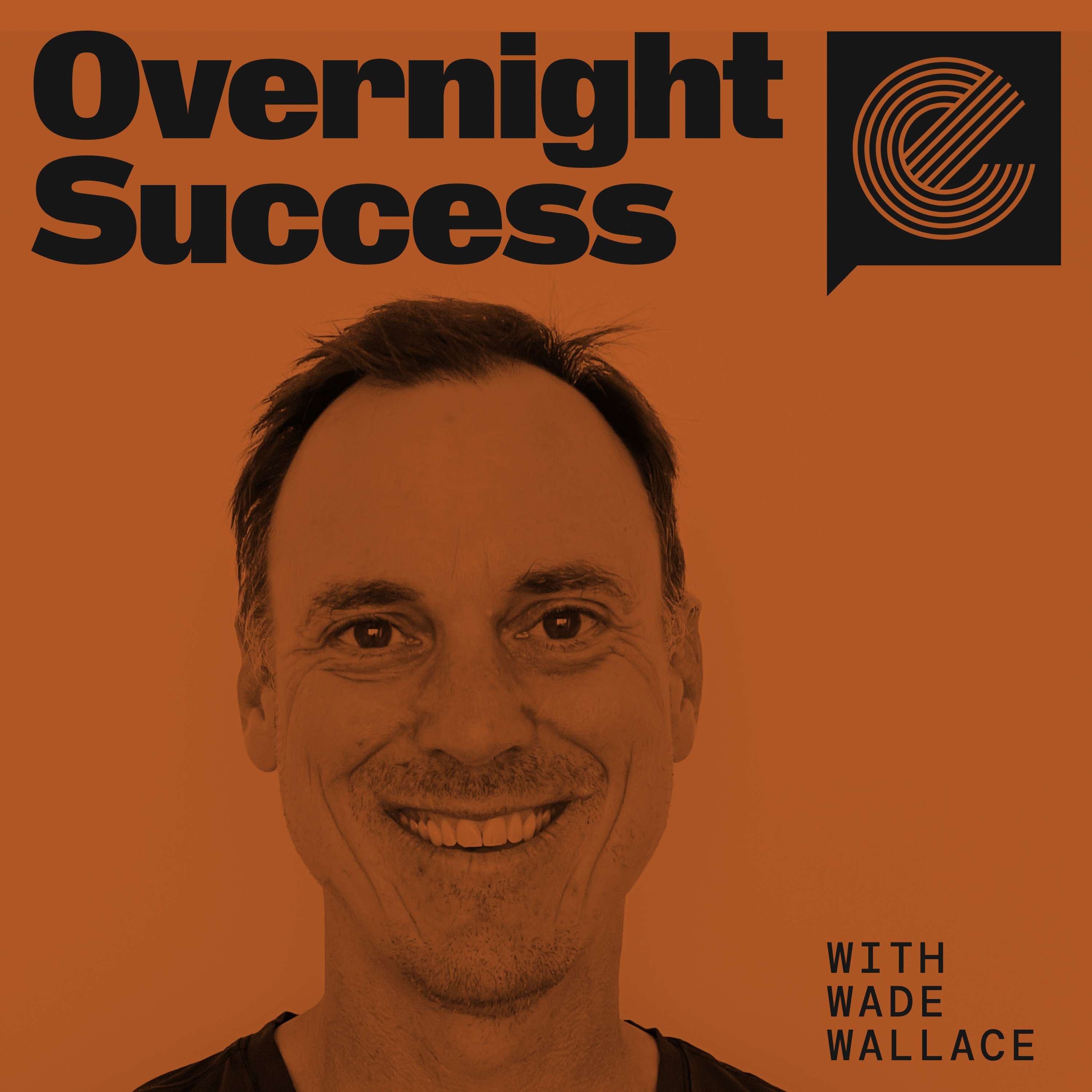
Building Castelli
The story of an unassuming American who brought Castelli back from the grave.You’ll be hard-pressed to find a more iconic brand in cycling than Castelli. The company dates back to the late 1800s, to around the time of the first-ever documented bike race. Castelli is an Italian brand with a long, complicated history, but much of its recent success is due to an American by the name of Steve Smith, who came onto the scene in 2000. He had no Italian heritage, no real cycling industry experience, but he did have a love of cycling. By his own admission, he wasn’t an amazing cyclist – instead he veered towards technical innovation so he could stay competitive. Steve’s email signature says ‘Castelli Brand Manager’, but I always got the feeling from speaking with him over the years that he did far more than that. As I dug deeper into his story, I learned he’s part owner of the business, steers the ship, and is ultimately the man who turned Castelli around into what we know it as today.If you enjoyed this and want to hear more, please become a member of Escape Collective by joining here: https://escapecollective.com/member
01:08:0815/02/2023
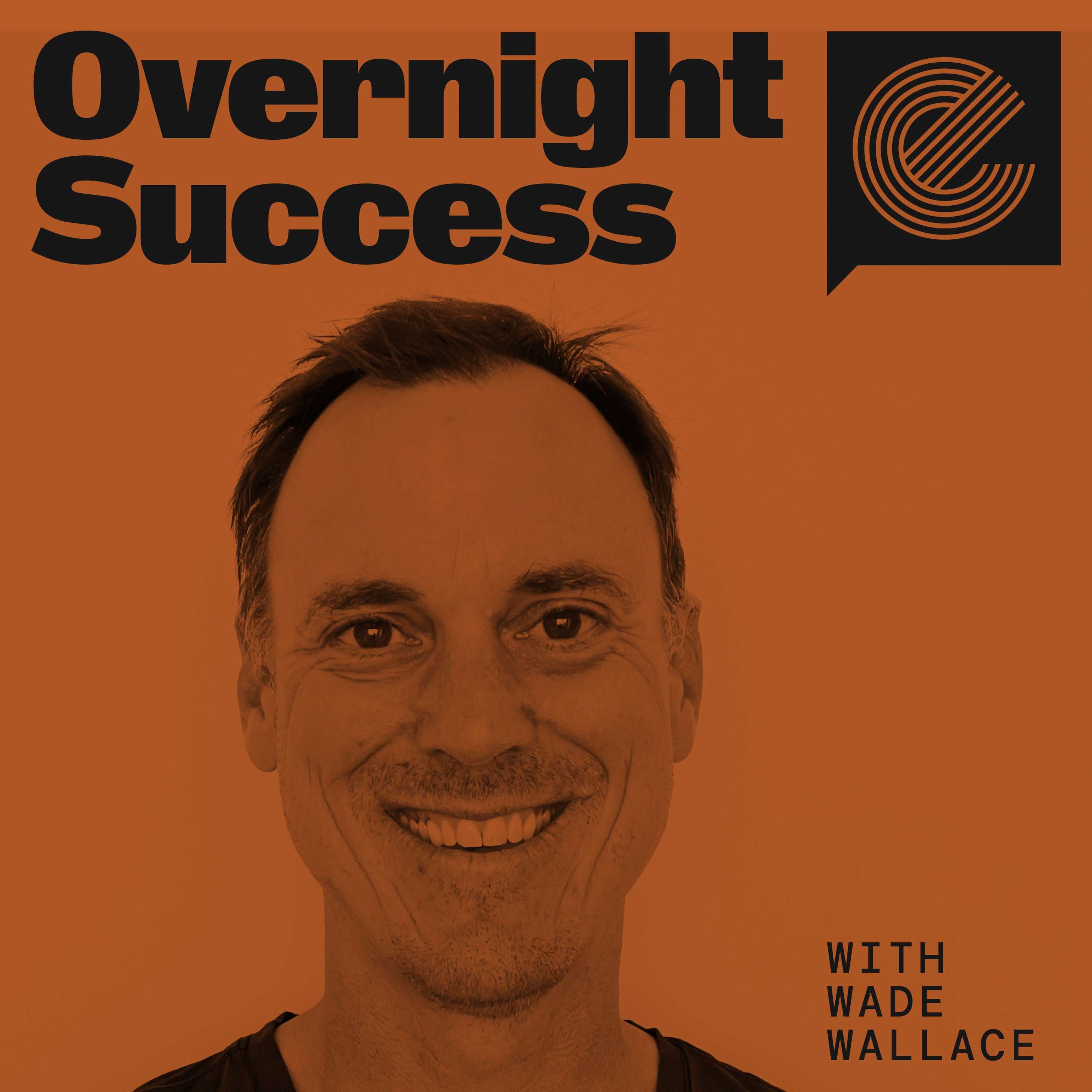
Building The Sufferfest
In this episode of From the Top, I speak to The Sufferfest founder David McQuillen about how he went from working in the Swiss Banking industry, to creating one of the largest indoor training platforms in his spare time and later selling the business to Wahoo Fitness.I first met David back in 2010 at the Road World Championships in Geelong and we became good friends thereafter. We were both in similar start-up stages of our businesses and we had lots in common. When David moved to Melbourne we got together frequently to discuss business, cycling and the general landscape of both.David is one of the most enthusiastic, humble, and clever people I’ve had the privilege of knowing and it’s been an absolute joy to watch his business flourish. As you’ll find out, even though The Sufferfest may have been a ‘happy accident’, none of the decisions he took on his successful journey have been by mistake.This is David’s remarkable story of how he built The Sufferfest.If you enjoyed this and want to hear more, please become a member of Escape Collective by joining here: https://escapecollective.com/member
01:03:5014/02/2023
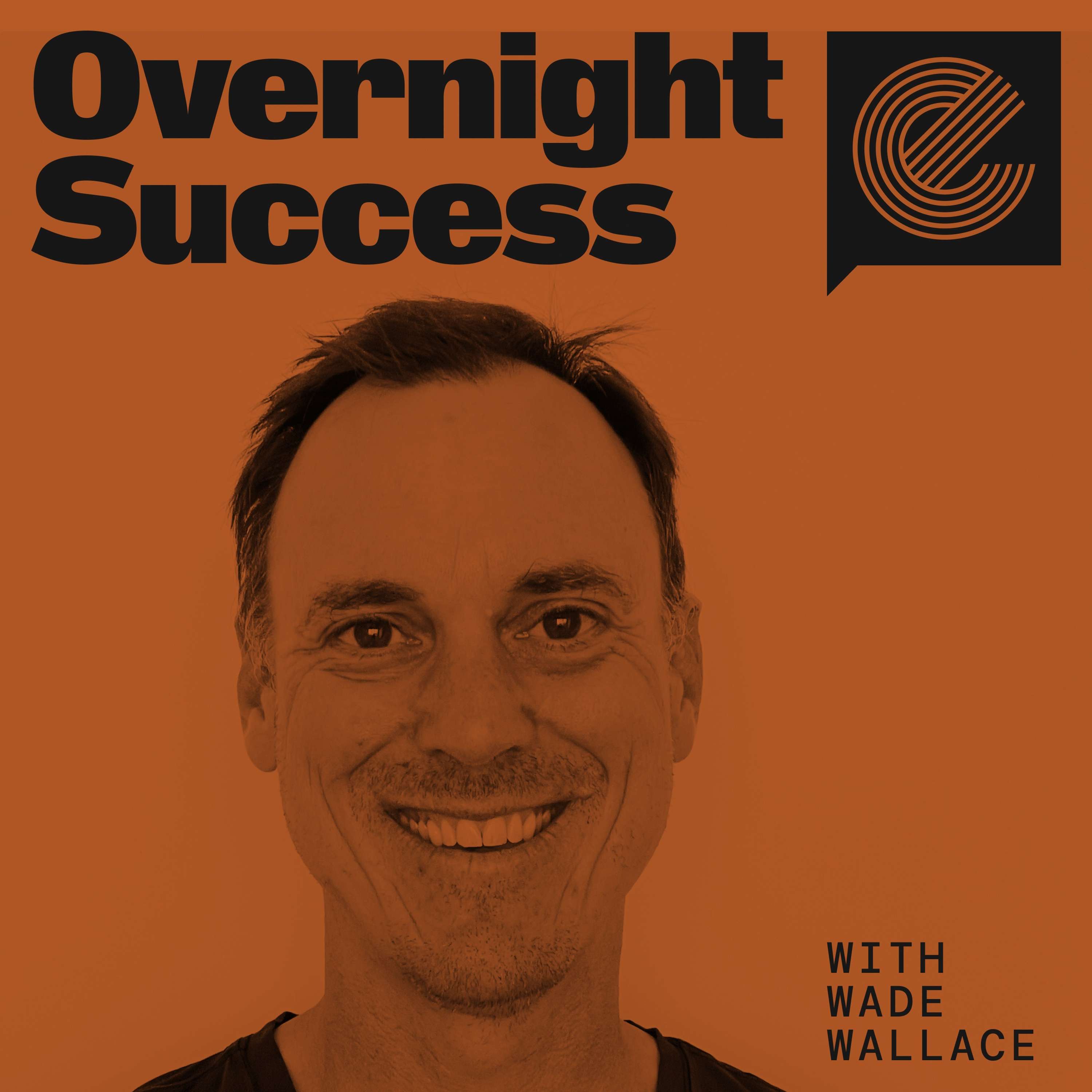
Building Skratch Labs
So many of the businesses we’ve discovered in this show have been ‘happy accidents’ so to speak, and Scratch Labs embodies that very same organic build and hustling spirit. Founded by two longtime friends, Allan Lim and Ian McGregor as both were sidelined from the sport, they both described themselves as initially too ‘lazy’ to actually sell their ‘secret drink mix’ they were making for pro cycling teams at the time. But as one thing led to another, they found themselves in their kitchens making their products, mixing drink powders in paint shakers, and throwing pizza and beer parties with their friends to fulfil orders. In an absolutely crowded market of nutritional products, these two, with no business experience were able to work their way to become one of the biggest little brands in the sports nutrition world. If you enjoyed this and want to hear more, please become a member of Escape Collective by joining here: https://escapecollective.com/member
01:00:4113/02/2023
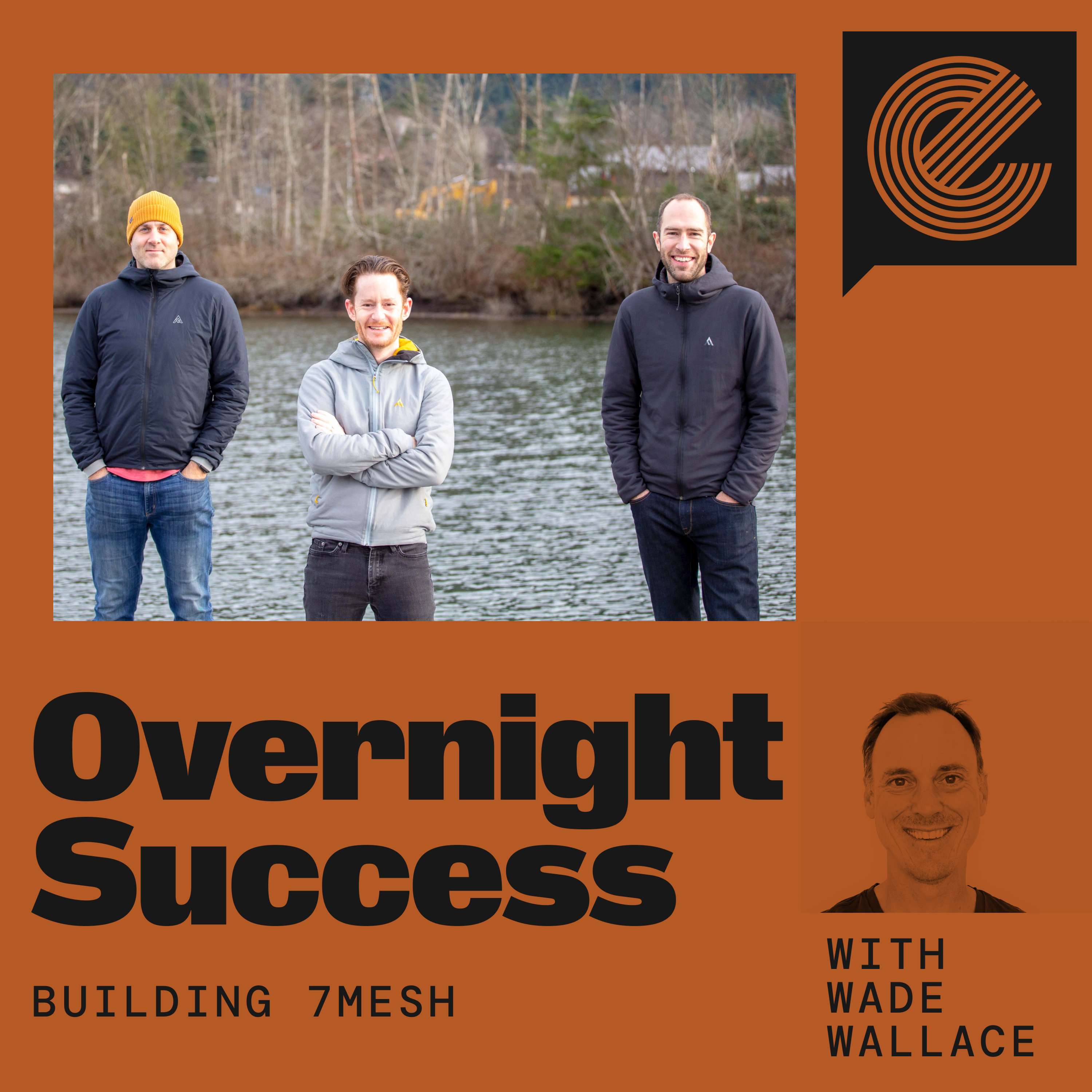
Building 7mesh
In this episode we speak to the three co-founders of apparel brand, 7mesh.Getting into the cycling apparel business could now be one of the lowest barrier-to-entry segments in the industry. Anyone with an Instagram account and some design ability can source directly from factories in Italy or China and create a clothing ‘brand’ these days.That’s not to say some don’t break through and create legitimate and worthy businesses this way – I know a few first-hand who have. This low barrier to entry has enabled some wonderful brands to get started and flourish. But because of this it is now a crowded market, and it’s tough to discern who’s doing great work and innovating, and who’s just pumping out disposable fashion.From the moment I first discovered 7mesh I knew this was going to be something different.For those who don’t know, 7mesh is an apparel brand based in Squamish, Canada which makes top quality apparel made for the demands of mountain biking, gravel and road.The three founders, Tyler Jordan (you’ll hear him often being referred to as TJ), Ian Martin and Calum Davidson aren’t three people who randomly got together to do a passion project. They were three early staff members and integral to the success of outdoor clothing juggernaut, Arcteryx.Tyler was the CEO, Ian was Design Director, and Calum was Director of Supply Chain – and all were (and still are) nuts for cycling. They were also great friends in their days at Arcteryx and were having fun, pushing boundaries, and getting shit done.But as the saying goes, all good things come to an end and as the three oversaw tremendous growth in the business they all gave everything up to go off on their own and create something from scratch.To tell the story of 7mesh, we need to get to know Tyler, Calum and Ian in their early days at Arcteryx …
01:25:2009/02/2023
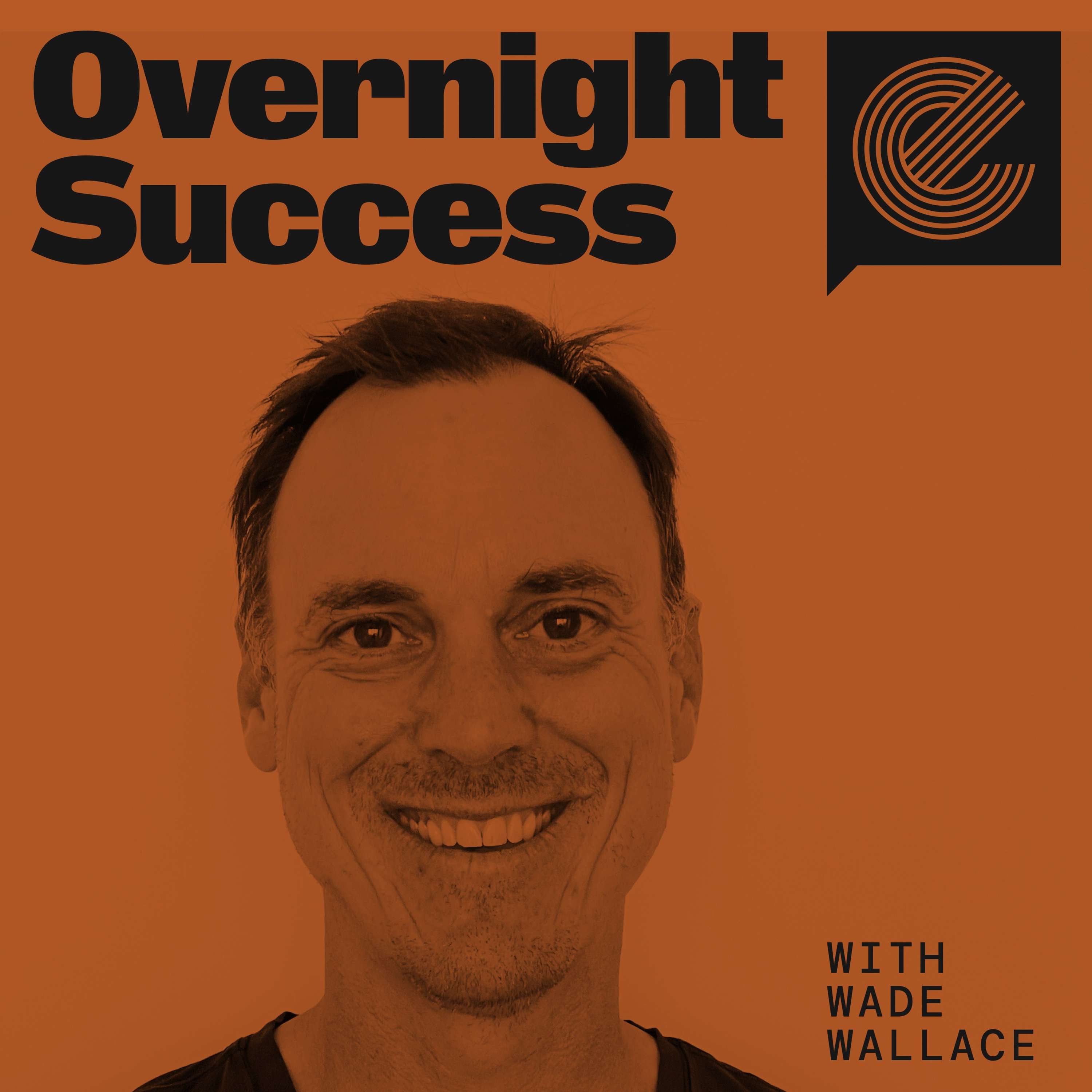
Building Apidura
Apidura is a brand you may not be familiar with if you haven’t ventured into the world of bikpacking, touring or adventure racing. They are pioneers in rackless bike bags category, and support the community of ultra cyclists and bike packers. They’re a brand at the heart of this rapidly growing community and are enabling a whole new wave of this type of cycling.Tori Fahey is the founder of Apidura and never set out to create a business out of her homemade packs and bags. She did it to satisfy her own needs with how she needed to balance her hectic life by doing long rides, tours and adventures.What I find inspiring about what Tori has done with Apidura is not necessarily the business she’s created and it’s quick rise (although that is pretty remarkable in its own right), but the foundation she’s build the company on, and the values she holds and follows through with. She’s been outspoken about consumerism and the culture of seasonal discounting. She is conscious about the footprint the business leaves on the environment. She focuses her resources on making their products better, rather than new colorways or seasonal changes. She made a deliberate choice at the start not to be a growth led business, but to be a product led. That’s one thing to say when you have a hobby business, but something completely different when you have employees, a supply chain, and a customer base who depend on you.I hope you enjoy listening to this episode as much as I enjoyed brining it together.
01:26:5906/02/2023
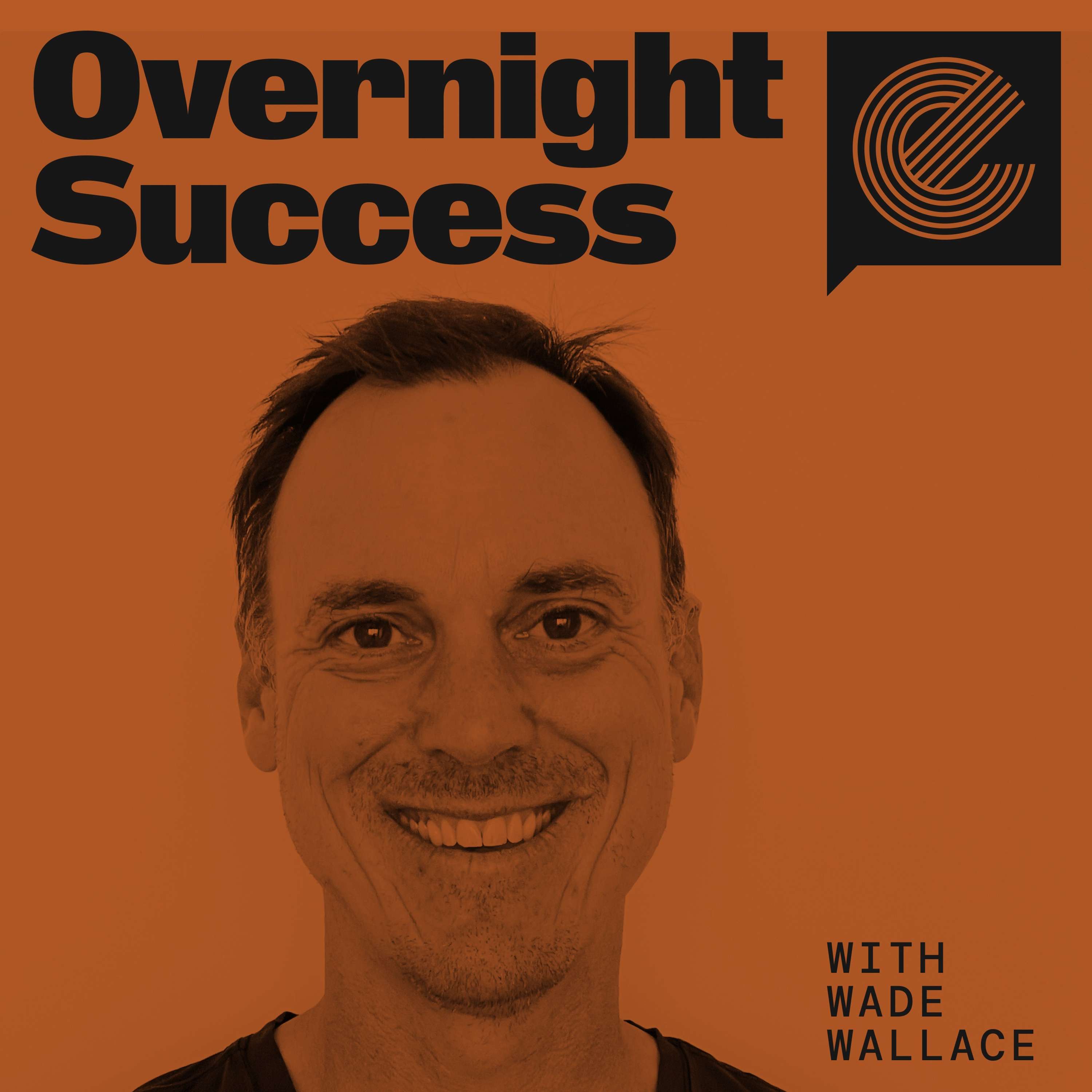
Building Zipp Wheels
Zipp is an indisputable icon in the wheel and component business and they have a long history of innovation. They were one of the very first brands who thought about wheels differently and pushed the envelope to bring performance wheels where they are today.An engineer by the name of Leigh Sargent is the founder of Zipp way back in the late 80’s, and it’s a gentleman by the name of Andy Ording who was Leigh’s first employee. Ording bought the company outright in its early days, and built Zipp during its formative years. Zipp now belongs to SRAM and its family of products and continues its legacy of innovation, but the origins of this pioneering brand started over 30 years earlier.
01:37:1828/01/2023
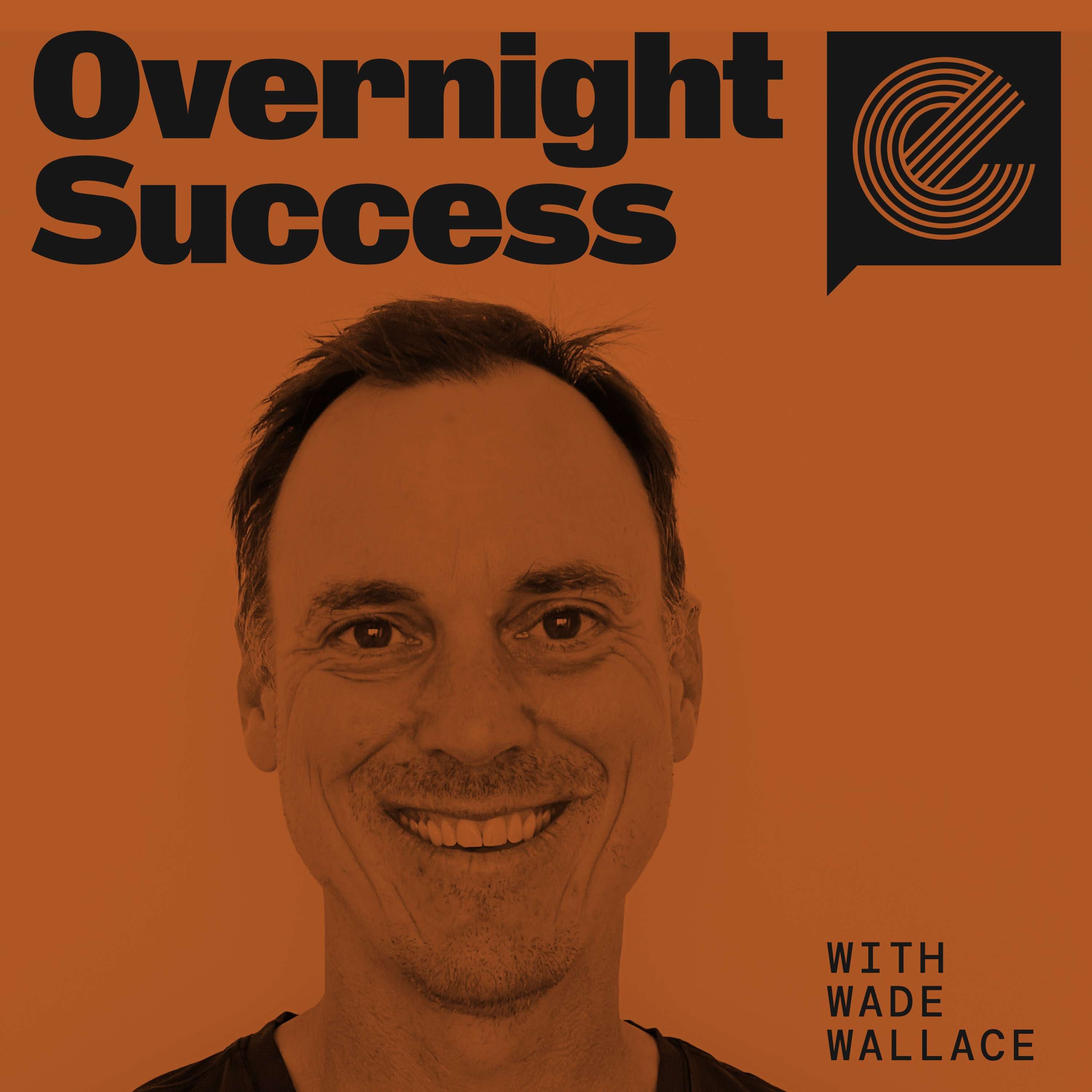
Building Rocket Espresso
Rocket Espresso is not a cycling brand per se, but it’s arguably the best-known coffee brand within the orbit of our own little cycling world. Most cyclists have an appreciation for the sort of beautiful, mechanical, craftsmanship that Rocket does so wonderfully. It’s easy to see why the brand connects so strongly with cyclists.New Zealander Andrew Meo is the co-founder of Rocket Espresso and it’s no coincidence that the brand found its way into cycling. Andrew is a lifelong avid cyclist and his passion for coffee didn’t come until a bit later in his life …I hope you enjoy the tale of Andrew’s remarkable journey across the globe that lifted coffee machines to a whole new level.
01:02:3826/01/2023
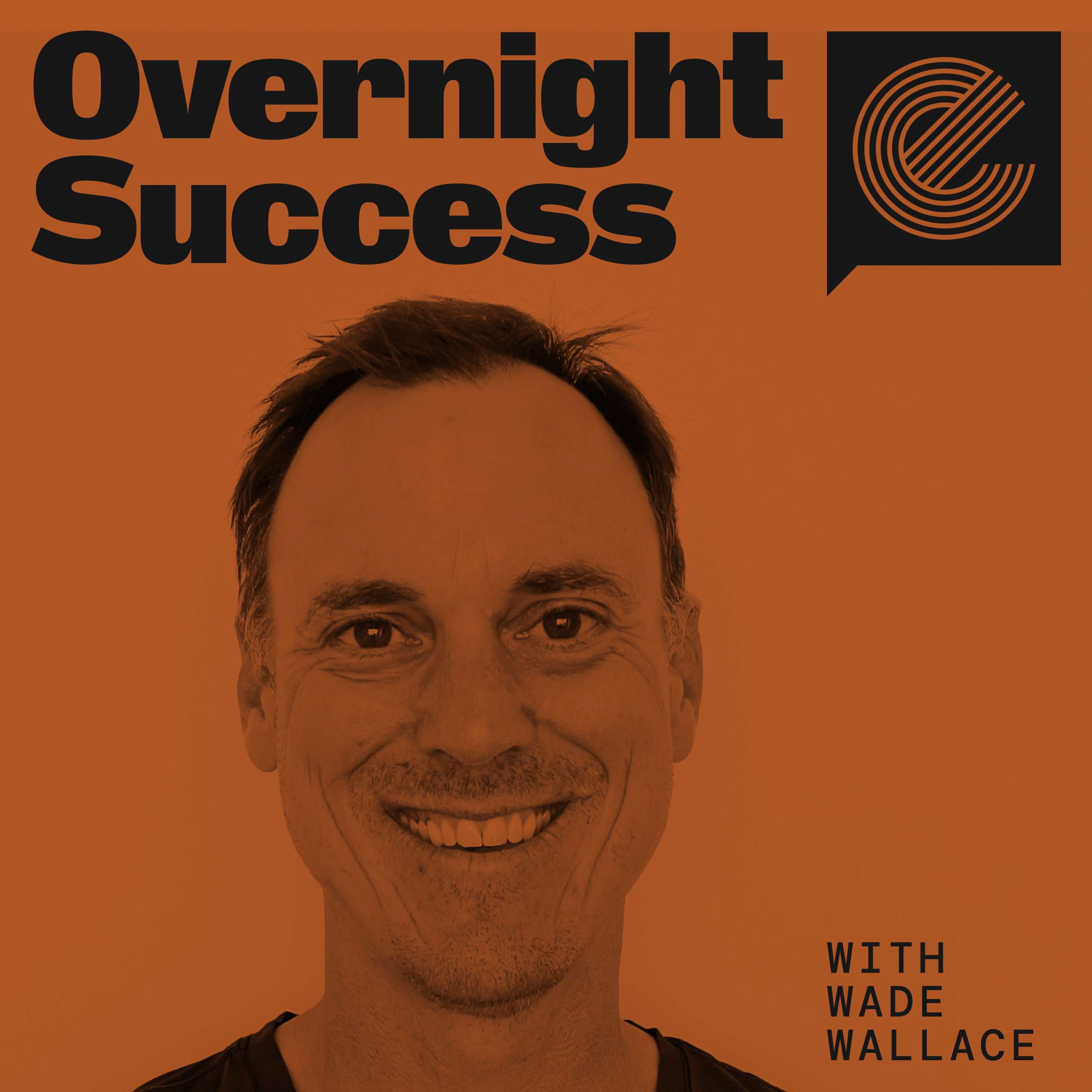
Building SRAM
SRAM is credited with having three co-founders, but Stan Day is the man who planted the seed. And you could very well argue he is the man where the brand’s culture and values stem from. At least that’s what I got out of speaking with him in this episode while listening to his polite, humble and understated approach when sharing his story.SRAM all started with Stan taking on a triathlon challenge back in the 80’s and thinking that there has to be a better way than the current down-tube shifting method. Twist-shift was his answer and he was able to convince a few friends to leave their good jobs, move across the country and start a business in Chicago and sell their better way. But as successful as the company is now, it certainly didn’t start out that way. If it weren’t for one pivotal moment, SRAM might have been only a side-note in our cycling history books.
01:40:0421/01/2023
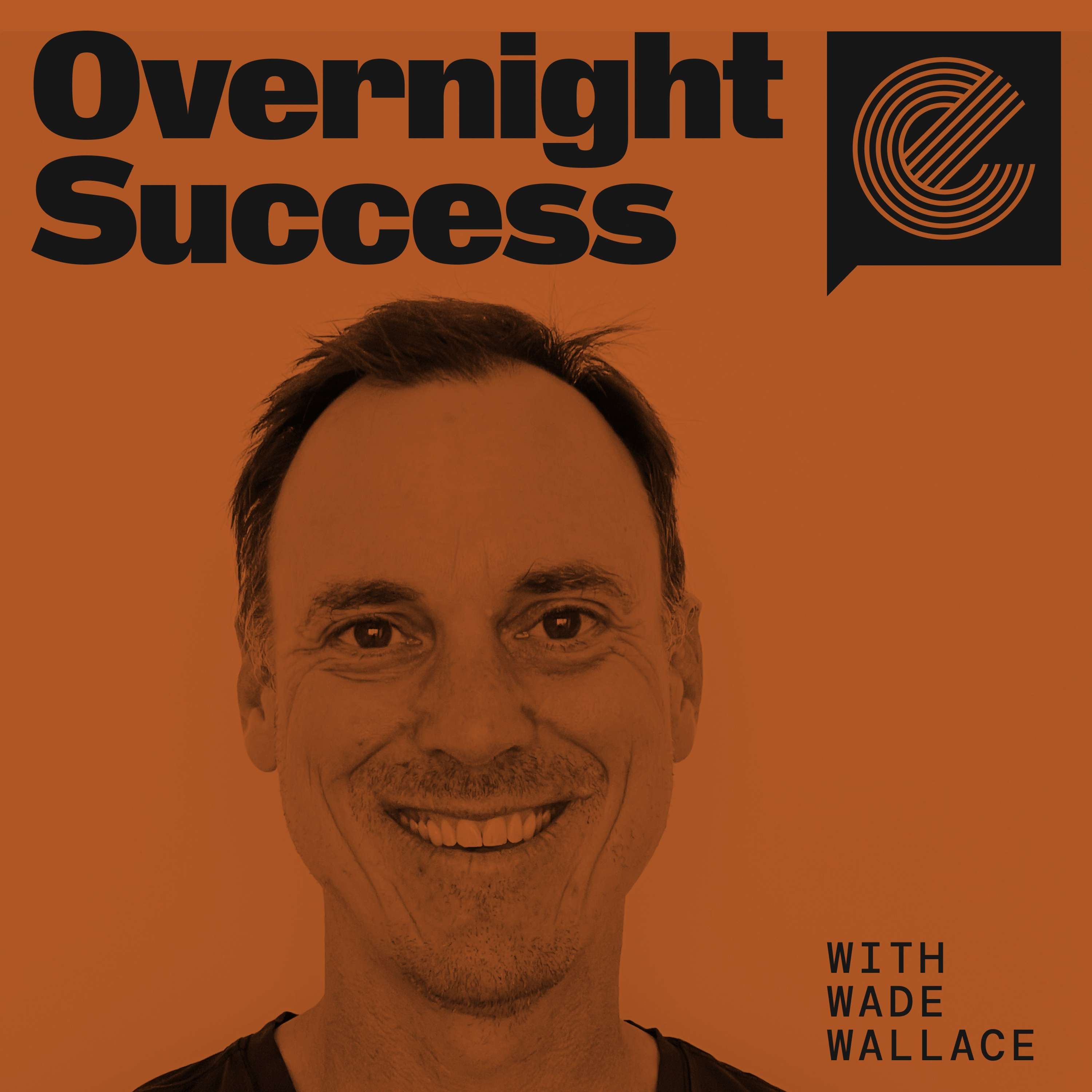
Building Silca
Josh Poertner isn’t your typical cycling industry personality. In fact, he’s not ‘typical’ of much at all. He’s one of those people that when you meet him, you’re taken back by a man who is filled with enthusiasm, curiosity, positive energy, and intelligence that really makes him stand out from most human beings.These days, you may associate Josh’s name as the man who reinvented Silca, the Italian tyre pump brand founded over a hundred years ago. But as with most of these stories, it was far from a straight path, and anything but easy. He started out as a keen and talented bike racer, who later became a brilliant engineer who got his feet wet in motorsport and later went on to be an enormous influence in making the Zipp wheels the brand what it is today.
01:43:1121/01/2023
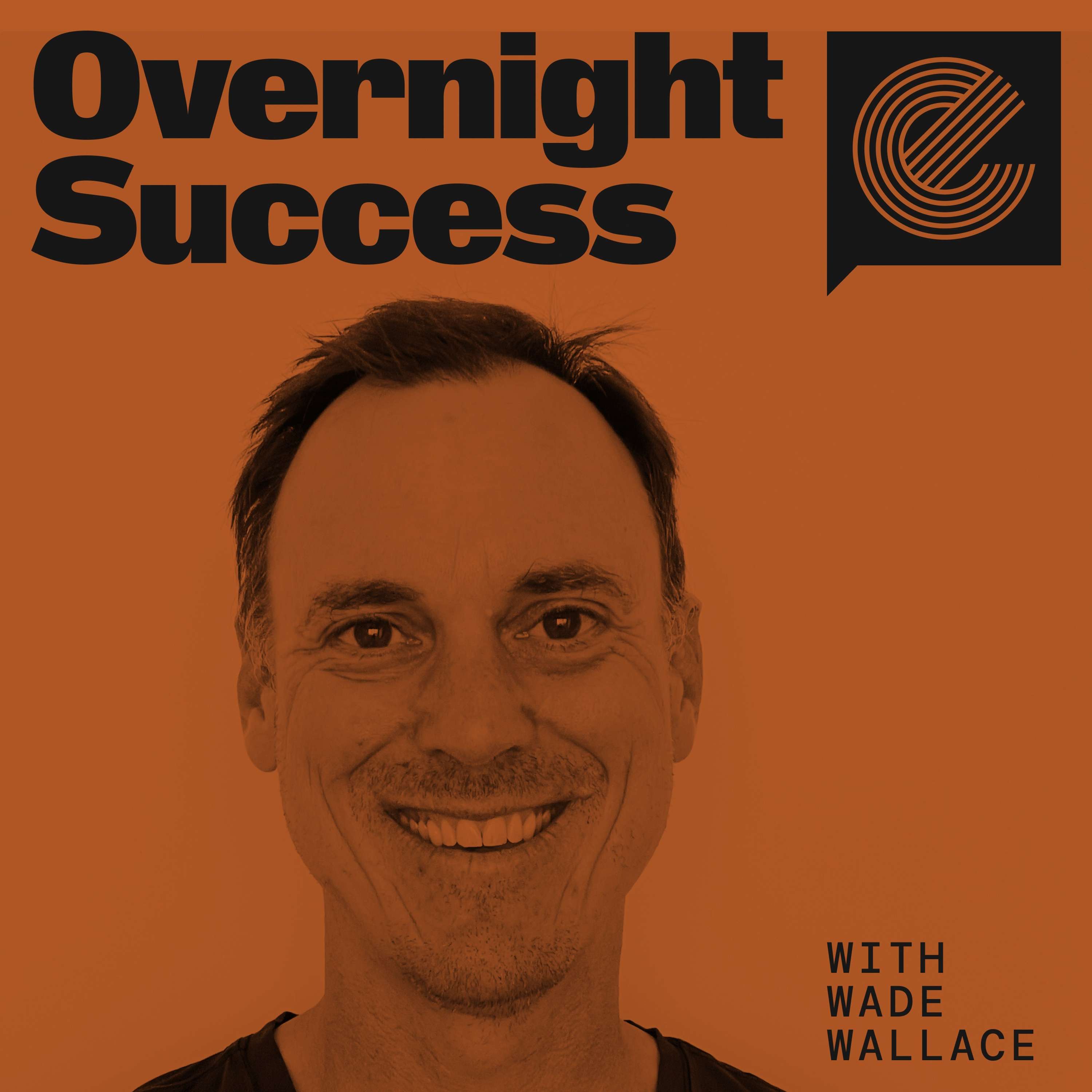
Building Ritchey
The story of how a humble man played a major part in disrupting the cycling industry.Not only is Tom Ritchey one of the founding fathers of mountain biking, but he’s also a master frame and component builder, innovator, and entrepreneur.Researching this episode and trying to put a timeline together to extract the major business milestones that Tom has been through was a bit of a daunting task. There’s so much there. He’s been in business for 50 years and as modest a business as he’s intentionally kept it, it hasn’t always been a straightforward journey.So much of Tom’s story has already been documented and I didn’t want to just do that again. In fact, I can’t do justice to telling Tom’s intertwined life and business journey in a podcast of any reasonable length. But as it turned out, what came out of Tom during our interview ended up being so much better. At this point in Tom’s life I found him incredibly reflective on his experiences, with the benefit of years of hindsight and perspective.
01:05:3018/01/2023
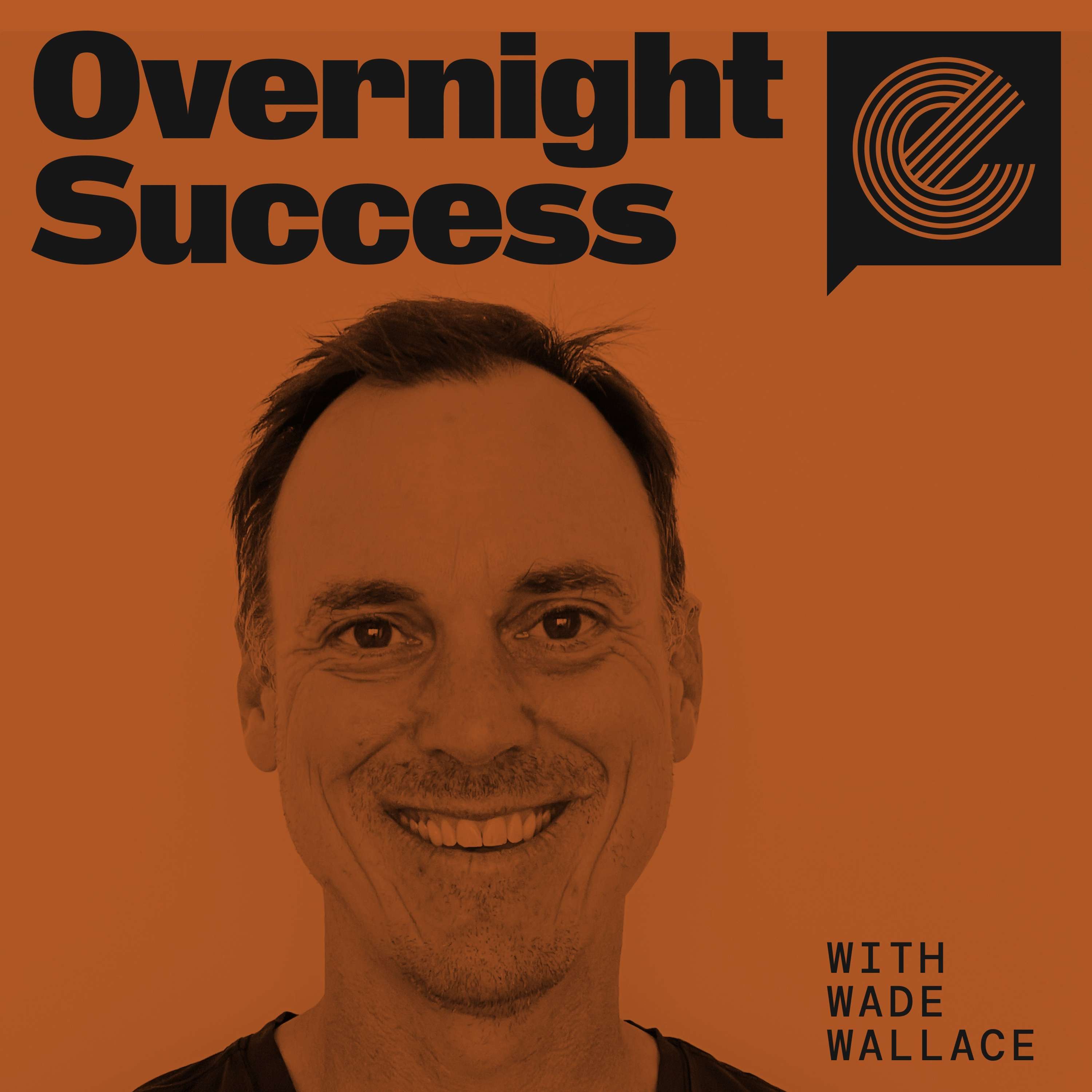
Building Wahoo
Most businesses we’ve spoken to in this podcast have had a relatively straightforward journey, but Wahoo Fitness does not fit that mould. Chip Hawkins is the company’s founder and believe it or not, the Wahoo business started off in boat docks. That’s right, floating boat docks. But it was a good business with interesting problems that Chip loved to solve.Chip is an engineer, an entrepreneur, a tinkerer, and most importantly, someone who loves to throw himself neck deep into fixing problems to make something better. And it usually starts with him and his own needs.Chip’s story is one that proves that if you see a problem and you care enough to solve it for yourself and maybe a few friends, there’s likely a market out there for a business to take shape. And as Chip points out, the most important thing is that you have to try.
01:28:0617/01/2023
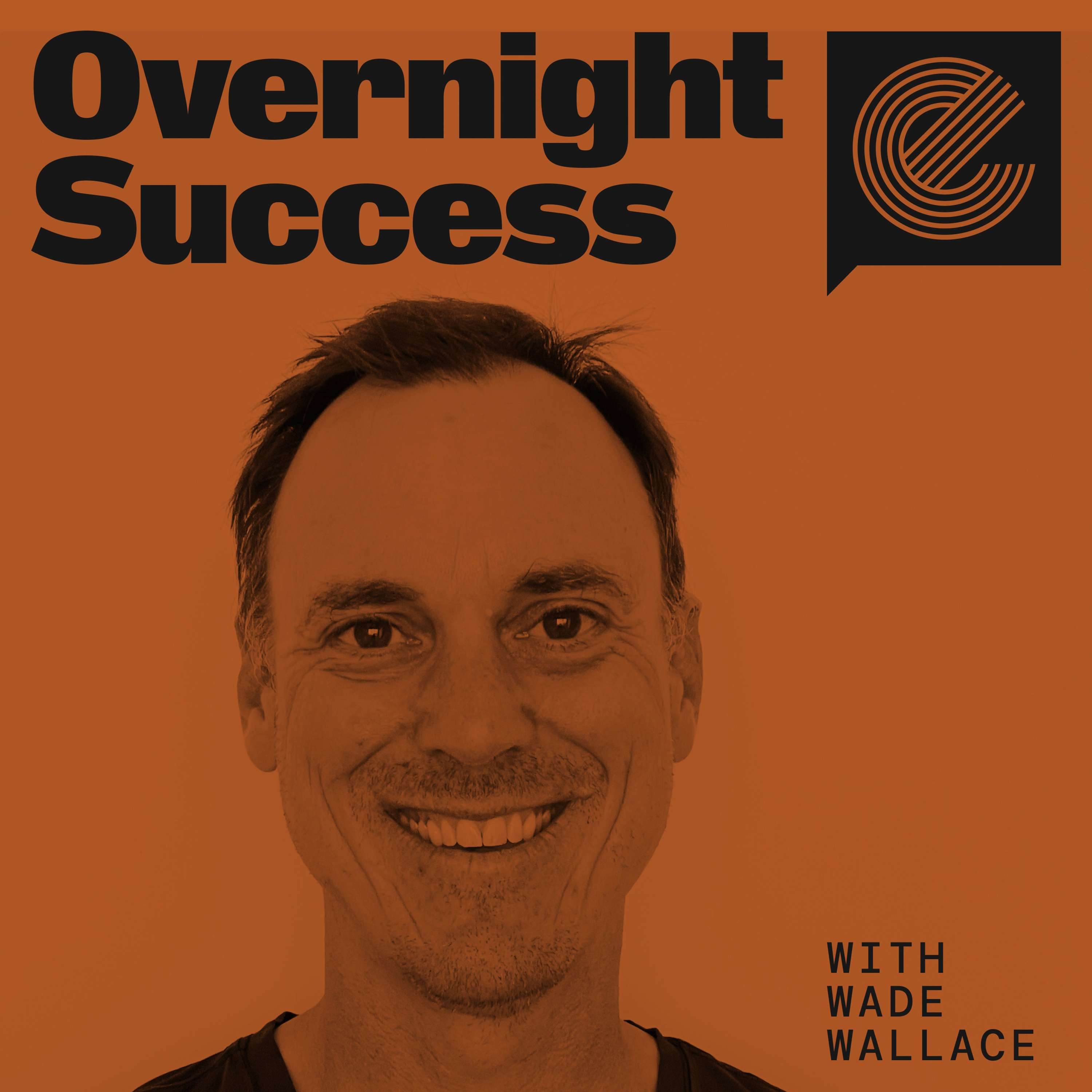
Building Strava
Escape Collective is entirely member-funded. If you like this podcast please consider supporting us by becoming a member: https://escapecollective.com/member/---Strava has become ubiquitous in the lives of over 50 million athletes and is arguably the most relevant social network to anyone who loves to sweat.The co-founders of Strava, Michael Horvath and Mark Gainey, have been lifelong friends and have quite literally changed how we interact with our cycling in both real life and with each other online.The reason I was so interested in hearing Michael and Mark’s story was not only because they’ve created an amazing brand and product that most of us use, but because they went about it in a very different way than most of the companies you’ll hear about in this podcast.Creating Strava wasn’t their first trip to the rodeo. They were experienced, successful, and knowledgeable entrepreneurs that made some very deliberate decisions early on about the foundations of the company. Those decisions have taken Strava to where it is today and should help take it into the next 20 years.Strava started from nothing but a single idea with only passion fuelling the fire, and as you’ll discover, creating Strava hasn’t been the straightforward journey that you might think about when you log on every day.
01:26:2106/01/2023





